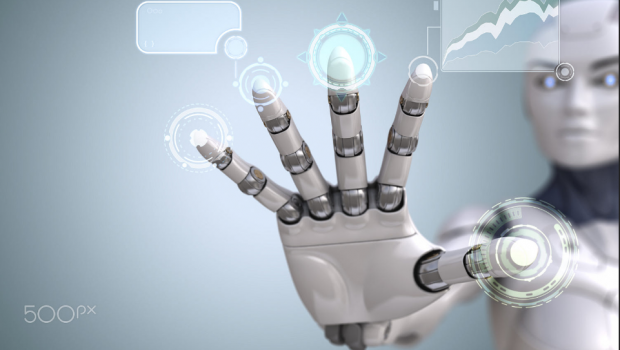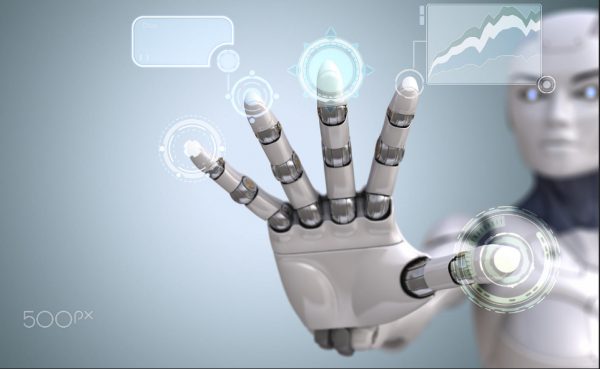Top 8 Business Tech for 2020 and Beyond
In the 1960s, The Jetsons predicted that the 21st century would be filled with flying cars, and airborne robots would be part of our lives. While it’s inevitable that tech trends are headed in this direction, we still have a long way to go. Instead, the world is dominated by an infinite amount of knowledge at our fingertips, and technological advancements are skyrocketing faster than ever.
Agreed, discussions over the last decade concerning life-changing technology had begun to feel somewhat repetitive. However, with today’s pace of change, it’s becoming harder and harder to predict the state of technology in the coming years, not to mention what this means for businesses. Unlike the digital transformation trends for the past decade, such as the internet of things (IoT) and augmented reality (AR), the future is more aligned towards robotic process automation (RPA), Artificial Intelligence (AI), augment/virtual reality, 5G and the advancing cybersecurity field. Without further ado, below is a list of top eight tech predictions that will redefine business processes moving forward.
1. 5G Network
The advent of the 5G network is among the most perplexing new technologies that will impact businesses in 2020 and beyond. In fact, according to most industry experts, this technological advancement is believed to be the future of communication, and for a good reason. Besides bringing faster broadband speeds and reliable mobile networks, the rise of 5G will boost advancements in smart cities, smart manufacturing and autonomous vehicles. Moreover, it will redefine the global economy with new services, products and even new industries as well as business models.
2. Analytics for competitive advantage
Today, flying blind and following your gut is no longer a viable option in business. Thus, companies are investing heavily in analytics. This ensures they capture all the available valuable customer data that can be processed and turned into insights for future markets. In fact, most businesses are leveraging, refined analytics tools to detect problems, opportunities, and solutions. If you’ve been following up on tech news, you’ll realize that major companies such as Salesforce and Microsoft have been making power moves for data and real-time processing.
Moreover, with consumer analytics as a priority for many businesses, personal profiling of consumers is also essential. Generally, this aspect examines how customers interact with technology, their spending patterns and preferences. However, this tech advancement sparks a lot of controversy about consent – what is the limit of personal profiling and does this cut across all consumers? All we can do for now is wait and see how this will be implemented in the future.
3. Robotics Process Automation (RPA)
While robotic process automation isn’t new, it’s considered to be among the top technology trends of the future. Therefore, as interest and investments continue to accumulate, RPA will become an essential component for businesses everywhere. Already, enterprise companies such as Cisco are using RPA to establish some wiggle room to boost and upskill the value of their existing task force.
4. Artificial intelligence
According to a recent PwC report, today, over 67% of companies prefer AI assistance to human assistants. So, what does this mean? It’s quite evident that in the coming years, AI will only grow, despite societal tension around the subject. Moreover, artificial intelligence (AI) and machine learning (ML) will automate the majority of routine tasks such as analytics and customer support services.
For instance, now it’s more important than ever to invest in AI and ML, especially for analysis. Otherwise, how else will you navigate through the vast, volatile information and data you aim to use? The value of this investment lies in speed, scale and convenience. For instance, through speed you’ll be able to analyze massive data sets as compared to if the task was assigned to a human being. Thus, ML and AI can analyze complex data in a fraction of the time you’d expect. Moreover, unlike data analysis tools, adding AI and ML tools to analytics tools has made them more instinctive, easy to use and more reliable.
It’s no secret that customers are people with similar needs who want to feel heard, valued, and respected. The convergence of artificial and emotional intelligence that is increasingly being used in marketing, customer service, and to measure customer engagement is the solution. In fact, according to a report from Accenture, AI and ML have the potential of driving a return on investment in the coming years. Besides that, automated routine tasks will enhance user experience as well as drive employee productivity.
5. Smart cities and autonomous driving
While this has been a hot topic for years, the combination of edge computing and 5G network will significantly bring us closer to this reality. Tesla is no doubt top of mind when it comes to smart cities or autonomous drones and cities. However, it is not the only brand that is trying to make this a reality. For instance, numerous other companies such as BMW, Volvo, Ford, Intel, Qualcomm and Nvidia are partnering up, while Amazon is looking into delivering goods straight to consumers’ doorsteps using autonomous drones.
6. Hyper automation
Automation is the use of technology to automate processes that were once performed by humans. On the other hand, hyper-automation refers to the application of advanced technologies such as artificial intelligence (AI) and machine learning (ML) to progressively automate tasks and augment human.
Although hyper-automation encompasses a wide variety of tools that can be automated, it also refers to the complexity of computerization with regards to discovering, analyzing, designing, automating, measuring, monitoring and reassessing.
7. Democratization of technology
Like in a democracy where every person has equal rights and responsibilities, the democratization of technology refers to the ease of access to technical or business expertise. Generally, this aspect is categorized into three integral areas, which are
- Application development
- Design and knowledge
- Data and analytics
In a nutshell, the democratization of technology enables one to become an expert without having to receive any training. For instance, developers would be able to create data models without having the skills of a data scientist. Instead, they would rely on AI-driven development to create code and computerize testing.
8. Empowered edge
Today, the number one concern for most industries is the slaggy approach that affects the general management of business processes. Thus, more and more industries are focusing on efficiency and the response rate of computing, through which data analysis is made possible.
Luckily, with tech advancements in edge computing, data storage and computation are much accessible to businesses. Hence, this improves the response time, saves on bandwidth and reduces latency. Basically, edge computing analyses technology on the Internet of Things (IoT) and how devices are snowballing and forming the footing for smart spaces, then moves integral applications and services closer to the people and gadgets that use them.
Moreover, according to Gartner, edge computing will become a leading factor across industries with more advanced and specialized computing resources and data storage. Additionally, sophisticated devices such as robots, autonomous vehicles, drones and operational systems will promote this shift.
It’s quite clear that the digitization of businesses demands a more agile way of automating processes and applications to keep up with the ever-volatile market needs. What’s certain is that we can only anticipate better and greater opportunities as well as challenges in the business world. Nonetheless, embracing change and adopting a few of these technological trends will ensure your company maintains its competitive advantage and market position. The big question is, are you willing to take the next step and reshape your business processes?
















